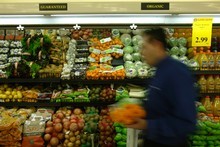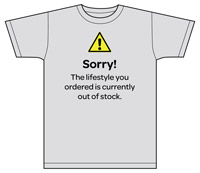Sue Kedgley: Growing fears for bill's impact on small gardeners

Once the new Food Bill becomes law, selling a small amount of produce to the local veggie shop will become a regulated activity. Photo / Richard Robinson
A new law would cut home-grown produce in shops and create a black market, writes Former Green MP Sue Kedgley, a safe-food campaigner.
A friend of mine has a magnificent garden on Waiheke Island, and every now and then she sells surplus organic produce to the local fruit and vegetable shop.
But once the new Food Bill becomes law, selling a small amount of produce to the local veggie shop will become a regulated activity. So if she wants to keep selling her surplus produce she will have to register under a new National Food Programme; have her garden inspected by Food Safety officials, and pay unspecified registration, inspection and administrations costs.
My friend is not keen to have Food Safety officials running round her property. Nor is she keen to fill out a food control plan or to pay for food safety verification and registration costs. So she's decided that if the new Food Bill goes ahead in its present form, she will simply stop selling her surplus local produce anymore.
Hundreds of small growers who supply small amounts of surplus produce to fruit and vegetable shops and local cafes will be in the same situation.
Growers who sell their produce directly at Farmers Markets will be caught up too.
And so will people who run sausage sizzles or home baking stalls more than 20 times a year. And if an organisation that sells sausages or jam isn't a registered charity, they will need to be registered and audited as well.
Once the bill is passed, many local growers and gardeners, like my friend on Waiheke Island, will stop selling their surplus produce because they don't want to get caught up in unnecessary bureaucracy, pay unnecessary registration and compliance costs, or have their properties audited.
Some, no doubt, will continue selling their produce - illegally. So the legislation will have the unintended effect of encouraging a black market in locally grown fruit and vegetables. How ridiculous is that?
The Minister for Food Safety, Kate Wilkinson, says individual growers will be able to write to the Government asking for an exemption from these regulations. But why should thousands of small growers have to apply for individual exemptions (which could be declined). Why not just exempt the lot?
If hundreds of local growers stop selling their surplus produce to local shops, this will deprive consumers of some great, locally produced fruit and vegetables.
But it will not improve food safety in New Zealand - for who has heard of cases of food poisoning coming from locally produced fruit and vegetables? In my view, it's silly and excessive to require small local growers who sell small amounts of surplus produce occasionally, to be regulated in this way.
It's targeting the wrong culprits to solve a problem that doesn't exist.
Most cases of food poisoning in New Zealand come from food that is sold in takeaway outlets and shops and cafes. There are also serious food safety issues associated with mass produced, factory farmed produce like chicken, which is notorious for having high rates of contamination with campylobacter, and also with imported produce.
These are the areas Food Safety officers should be targeting with the new Food Bill, not small local growers. Imported food is a particular concern because unlike locally grown food, we have no idea where most imported food has come from.
Nor do we know how it's been produced or what has happened to it along the way.
We don't know whether illegal pesticides or other substances have been used to produce imported food, or whether there are illegally high pesticide residues or other contaminants remaining in the food. And if a food safety problem does arise, it's extremely difficult to trace the problem back to its source.
That's why most countries randomly test around 5 to 10 per cent of imported food, to make sure it's safe, and doesn't contain illegal or unsafe ingredients or contaminants. In New Zealand, however, we don't randomly inspect imported food at the border (other than a tiny amount of "prescribed foods" to make sure they are not contaminated with salmonella and other bacteria).
I have been informed that the reason for this is because our Food Safety officials are under-resourced and understaffed.
If this is the case, then officials should focus their efforts on cleaning up factory farms and slaughterhouses, and randomly testing imported food.
Ironically, this Government has been vocal about its agenda to rid business of unnecessary regulations. But some of the provisions in the Food Bill are a classic example of exactly what the Government claims it is against - namely, saddling small businesses (in this case small growers) with unnecessary regulation.
The solution is simple. The Government should follow its agenda of getting rid of unnecessary red tape and regulations, and exempt small growers from the regulatory requirements in the Food Bill.
By Sue Kedgley
NZ Herald March 2nd 2012
Thanks to Sandra for passing on this link..... confirming that the world has gone mad. At a time when we should be encouraging home industry, food growing and taking responsibility for one's health and well being, governments just don't get it..... its no good having summits and protocols for climate change and poverty, on the one hand, and making laws to stop home gardeners and small growers selling produce, on the other!














